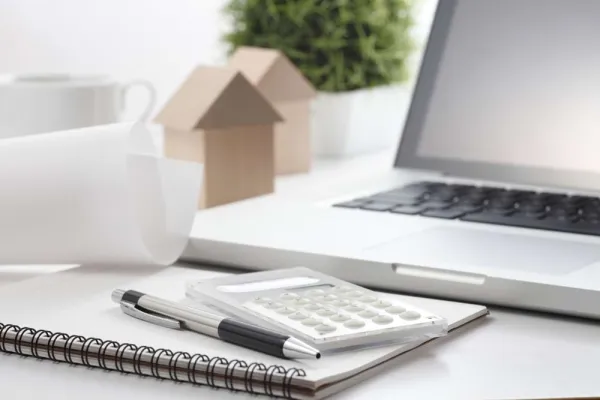You may have stumbled across your dream home and are desperate to get an offer put in to secure it. Property can move fast, so time can be of the essence when it comes to finding a new home. The only issue is you still own the house you have been living in. Maybe you had no intention of selling a house until you discovered this new property.
It is a common occurrence; people look to buy a new home before selling their other property and now are caught in the confusion of owning two homes with the intention of only having one.
The biggest question often revolves around the tax implications. This is because for a while you’ll be owning two properties. You might even end up owning two properties without the intention of selling the second one after giving it some consideration.
Owning two properties means that you will be liable for increased rates of stamp duty (SDLT), capital gains tax (CGT) and income tax. These are important things to consider before deciding whether you should make that additional property purchase.
What are the tax implications of buying a house before selling?
In the opening paragraph, we mentioned how there are likely to be higher tax rates to pay. The recent changes in stamp duty rules have represented a saving for many, but rules over owning more than one home mean that you will still have to pay a higher rate than normal.
Stamp Duty
When you buy your new property, at that moment in time you own two houses. You will be liable for the extra 3% that owning a second home adds to your SDLT. The rate will vary depending on the value of the property, but current rates for a second home are as follows:
| Property Value | SDLT Rate |
| Up to £250,000 | 3% |
| £250,001-£925,000 | 8% |
| £925,001-£1.5million | 13% |
| The remaining amount above £1.5m | 15% |
Non-UK residents will have a further 2% added to the amount. Certain exclusions from these rates can apply to everybody. For example, if the second property is a caravan, houseboat or mobile home you will not need to pay the high rate SDLT. In addition, if the property is valued under £40,000, you will not be required to pay it either.
Should you not match the criteria for exclusions, the higher rate will apply. However, you can have this refunded should you sell your original main home within three years of buying the other property. The refund will not be applied if you have any partial ownership of it still. In some instances, a refund may be granted after this 3-year time scale, however certain criteria must be met for this to be able to happen.
Capital Gains Tax
Capital Gains Tax is paid on almost everything that can appreciate in value. This can be personal possessions, shares, business assets and property. One common misconception is what CGT is worked out on. Rather than the total value of the asset, you will only pay tax on the amount of the appreciation.
With regards to property, whether you own one or two homes will not change the fact that this tax is payable. For example, in this content, we have been discussing tax implications for buying a second home before selling your other property. With CGT, you would pay it when you sell any property that is not listed as your main home. If it is your main home that you are selling, you would pay CGT if you have let the property out, used it for business, or it constitutes a large home. Therefore, in most cases, you would not have to pay GCT on the sale of your home (unless you own more than one).
Everyone has a personal allowance, though, and if your gains do not exceed £12,300 then no capital gains tax will need to be paid.
Where it is due, it must be paid within 60 days. The amount you pay will vary and depends on the size of the gain. However, if you are a higher-rate taxpayer the GCT is fixed at 28% for the gains made on residential property. For those on the basic income tax levels, if the gains fall within the basic income tax band, you will pay 18% on any residential property gains.
Income tax
If you have secured a second home and now plan to use it as your main residence whilst letting out your other property, you will need to pay income tax. If you were to make £1,000 or less from the rental of your property, you would not be expected to pay any income tax. However, if you were to have an income ranging from £2,500-£9,999 after allowable expenses or £10,000 or more before allowable expenses, you would need to complete a self-assessment.
Allowable expenses are often what lead to people being confused about their earnings through property. The UK government website describes them as items you need to spend money on for the day-to-day running of the property.
If you currently own two properties and are frustrated with a slow-moving market, speak to us at SOLD.CO.UK. We are the leading online estate agents in the UK and specialise in getting your property off the market fast. With us, you can sell your house for free meaning no solicitor costs, no fixed fees, and no commission. We make it easy for you to sell so you aren’t caught up in the confusion of additional SDLT or CGT. Contact us today and let’s get it SOLD!
















